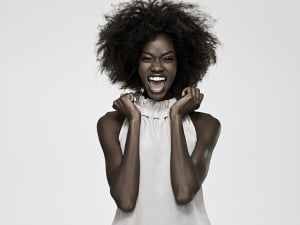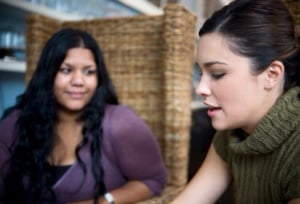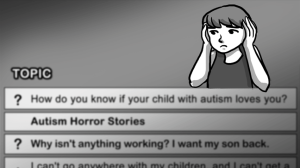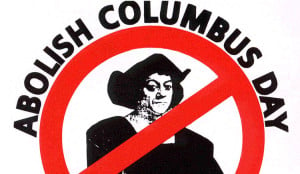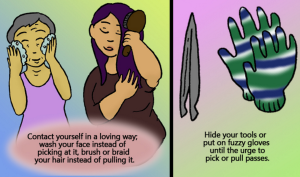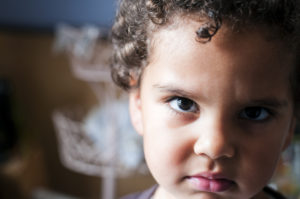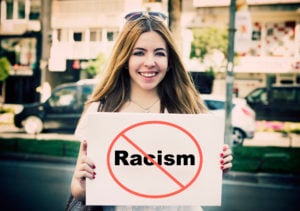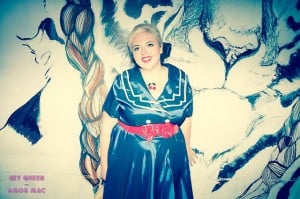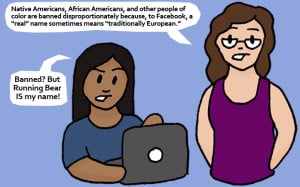(This article has been translated here in Spanish.)
There are a million ways to compliment a Black woman.
You could tell me I look radiant. Say you like my lipstick – it’s hard to find the right shade. Tell me you appreciate how my mind works.
I’m not just fishing for compliments here. I’m giving you options to avoid the dreaded “compliment” of touching my hair.
I’m sure you’ve come across the warning not to touch Black women’s hair before. But do you really understand why it’s so important to keep your hands out of our tresses?
This is a super common racial microaggression, which is a subtle form of racism often done by someone who doesn’t mean to be racist. I’ve had lots of people (usually white people) touch my hair, and in most cases, the touch came with a well-meaning compliment.
But you probably don’t know what the temptation to touch Black women’s hair means in US society – or about the impact if you follow your urge.
The objectification of Black bodies has been part of US culture since slavery, and it’s still going strong as one of our everyday struggles. This behavior affects all Black folks, but for this piece, I’m focusing on racialized sexism against women.
But wait – when you touch Black women’s hair, you don’t have racist or sexist intentions. So how does this relate to racism or sexism?
The answer comes down to the one of our core feminist values, consent – respecting everyone’s agency over their own bodies, including their hair. Having our hair touched is just one of the ways Black women are often denied this agency in our society.
Let’s go through the most common reasons I’ve heard for touching my hair, and how they relate to patriarchal white supremacy.
1. You’re Curious
I went to a writing retreat where a woman was insatiably curious about how my hair feels. She’d never been around hair like mine before, and she stared until I thought her eyes would bulge out of her head.
I finally gave in to letting her touch it before the poor woman had a medical emergency.
She asked the same questions every curious white person asks: “Is it real? How do you get it like that? How do you wash it?”
I understand the curiosity. But do you know why you’re so curious? It’s because the texture of my 4C hair is often invisible in mainstream society.
Eurocentric beauty standards mean that white women are a lot more common in the media than Black women. The Black women who are visible tend to have chemically straightened hair. Even I struggle to find care tips for and images of my hair type. So it makes sense that you haven’t come across those, and I appreciate that you want to correct your lack of information.
But unlike the white people who don’t notice how unusual my hair seems until they feel the urge to touch it, I notice the invisibility of my hair type all the time.
And that invisibility sends the constant message that my hair is unappealing – which is just one of many media messages about Black women’s inferiority. It’s hard to feel good about yourself when popular images of “beauty” don’t look like you.
So if you really want to learn about our hair, find information through research instead of reminding a Black woman that her beauty is rarely celebrated.
If you know a Black woman well, you could respectfully ask how she’d feel about answering questions. Some women don’t mind, but you’re not entitled to her answers. The expectation to educate people can get tiring, so lots of Black women just don’t feel like talking about it anymore.
2. You Find My Hair Fascinating
Sometimes my hair evokes more than curiosity – it fills people, like the woman at my residency, with wonder. Here’s how being fascinating can be a bad thing.
Black women are often “othered” in US society – like being treated as if we don’t exist in the media. Our hair is othered with insults and misunderstandings like the interpretation of braids on Black people as “gang affiliations.”
Even when the othering seems “positive,” it doesn’t feel good. It disrupts our efforts to simply exist without being treated like we’re abnormal. At the writing retreat, for instance, I’d hoped for quiet introspection.
Instead, I had a stranger’s hands in my hair. And “compliments” that essentially said, “Wow, you’re different!” And pressure to answer questions that basically covered why I’m so strange.
It was a little dehumanizing, even though she didn’t mean it to be.
When you rarely see Black women in the media, and even “positive” images objectify us, you’re influenced to treat Black women as objects. That’s not a good thing, even if we’re fascinating objects.
My hair is one of the ways I have control over my own image – it’s not just some anomaly for people to touch. Let me reclaim my own beauty and exist without being exotified.
3. You Want to Compliment Me
You may think this is my favorite reason. Who wouldn’t want a compliment?
This is tough, because I appreciate the good intentions – and then I feel bad for rejecting your compliment. Let me explain now so I don’t have to see your disappointment as you realize this is the wrong way to compliment me.
Say you’re at a party and I arrive with my afro combed out, shimmering, and on point. I wouldn’t mind at all if you say how great my hair looks. But then you reach out, telling me my hair is so beautiful and you’d give anything to run your fingers through it – and I have to stop you right there.
You’re shifting from a kind compliment into fascination territory. It’s not flattering to be exotified like some strange creature – even if you mean it in a “good” way.
Besides, if my hair’s looking good, don’t mess it up! I didn’t put time into it just to go around with a dent the shape of your hand.
Imagine a different scenario. You’ve crafted a beautiful, hand-made hat, which you’re proudly wearing at the party. I walk up, eyes wide with fascination, and say, “I like your hat.”
Then, before you can say “thank you,” I reach out and smash it with my palm.
Wouldn’t that be frustrating? Wouldn’t it be even more frustrating if you got upset and I replied, “You should appreciate it! It’s a compliment”?
That’s just rude. So please, respect Black women and stick to verbal compliments about our hair.
4. You Think It’s Not a Big Deal
Touching my hair is relatively harmless compared to other ways Black women are dehumanized, so I could try to “get over it.” But first, let’s be clear about what I’m “getting over.”
There’s the history of white people’s ownership of Black bodies. The obvious example is slavery, when Black folks were considered property, not people, by law. They had no power over their own bodies – which included being raped by slave owners.
That’s horrendous enough, but there are plenty more examples throughout history. Like the fact that Black people in the mid-1850s were considered such a deviation from the “norm” that they were exhibited in zoos and freak shows.
One woman, Saartjie Baartman, was displayed in a cage, mocked, and gawked at. Even after her death, scientists dissected her body to investigate the difference between the “savage” (Black) woman and the “civilized” (white) woman. Then her genitals and brain were put back on display until 1985.
“Jet-black and woolly was her hair,” a Victorian poet wrote.
Saartjie Baartman wasn’t buried until 2002. Amid racial tensions, her burial site in South Africa was recently defaced.
This is our history as Black women, and it hasn’t just stayed in the past.
White stars like Miley Cyrus and Amy Schumer liberate themselves by using Black women as props. Meanwhile, Black women experience daily microaggressions – including other degrading phrases meant to be compliments, everything from “You’re pretty for a Black girl” to “You’re not like other Black people.”
And while none of these acts alone may seem like a big deal, they don’t happen in a vacuum. They combine to give Black women the constant feeling that our bodies are always up for objectification, judgment, and othering.
By the time you take the seemingly simple action of touching my hair – no matter how well-meaning you are – I’m tired of being an object. It’s not a big deal to you, but it may just be the last straw for me.
5. You Wouldn’t Be Offended If Someone Touched Your Hair
If you treat others like you’d want to be treated, you should respect Black women’s boundaries like you’d want yours respected – even if their boundaries are different from yours.
I have a white friend who once asked me to put her hair in a french braid. She didn’t mind my touch, even though I was terrible at braiding it, because for her, it’s “just hair.” But when she wanted to switch roles and braid my hair, I stopped her.
Because for me and many other Black women, it’s more than “just hair” – it’s a vital source of empowerment.
For many of us, natural hair is a political statement of embracing our beauty instead of the idea that we have to change to be acceptable.
As a result, we’re called “ugly,” discriminated against in the job market, and profiled as criminals. We’ve been told since we were children, often from the women in our families, that something was wrong with our hair, and that the world wouldn’t accept it as is.
So owning and loving our hair is a revolutionary act of reclaiming our worth. It’s an integral part of our cultural experience. A white person touching our hair carries a different context than when you, as a white person whose humanity is affirmed far more often, have someone touch your hair.
This applies to all kinds of situations. People of different races have social conditions affecting them in unique ways. Usually, the question of “Would a white person be offended?” is not an accurate measure of whether or not something is harmful for Black folks.
6. You Have No Idea How Often We Have to Deal With This
Black women deal with people touching our hair a lot. Now you know. Okay, there’s more to it than that: Black women deal with people touching our hair a hell of a lot.
If you approach a Black woman saying “I just have to feel your hair,” it’s pretty safe to assume this isn’t the first time she’s heard that.
Everyone who asks me if they can touch follows a long line of people othering me – including strangers who touch my hair without asking. The psychological impact of having people constantly feel entitled my personal space has worn me down.
If you’re not a Black woman, and you’re doubting that this happens so frequently, consider that…well, that you’re not a Black woman, so you’ve never walked in my shoes, or under my afro.
Do me a favor and take my word for it – or find the many other Black women speaking up and writing about this for more confirmation. Then find some empathy for those of us who so often have our boundaries violated.
7. You Know Someone Else Who Didn’t Mind
Do you know a Black woman who doesn’t mind when people touch her hair? So do I! We all have different preferences, and I don’t claim to be the authority on all Black women’s boundaries.
Even my preferences vary. For instance, I’ve let curious children feel my hair because – unlike adults who should know better – they don’t understand why I wouldn’t want them to. Many Black women’s boundaries include no hair touching, but that’s not even the whole point of why you should keep your hands to yourself.
The point is that everyone deserves to have their personal space respected. As feminists, respect for consent is one of our fundamental values. That should include not assuming that a Black woman consents to touch, even if another woman didn’t mind.
What if you ask for permission? We’re used to consent meaning asking first, and proceeding if you get a “yes.”
But just like sexual consent includes things like body language and inebriation status, getting consent to touch a Black woman’s hair includes more than just asking. You also have to consider the broader context. Even the fact that you’re curious points to a problem. It means you’ve internalized society’s othering of Black women – and you should work on that before you satisfy your curiosity.
There might be situations when Black women don’t mind touching. But there are also situations like that writing retreat, when I let the woman objectify me because I wanted to avoid any issues. And times when the person who wants to touch me is in a position of power, like an employer – and there’s a lot of pressure to be “nice enough” to let them touch.
So it’s better to err on the side of keeping your hands to yourself – even if you’d give the courtesy of asking before touching.
8. You’re Offended By the Idea of Not Being Able to Touch My Hair
Still think it’s no biggie to ask? Let’s talk about those “issues” that might come up if I say “no.”
Whenever I write about how white people can avoid being oppressive, some white people inevitably object to being told what they “can and can’t do.” You don’t want your freedom limited, but in many cases, this reaction isn’t about freedom. It’s about entitlement.
Touching my hair is the perfect example.
It’s an act that invades my personal space, and if I don’t want that – even if you don’t understand why I don’t – you should respect my choice. I mean, you’re trying to pet me. Even my cat sets her boundaries when she doesn’t want to be petted, so shouldn’t I, as a human being, have my boundaries respected, too?
As a woman, I’m subject to rape culture that says men are entitled to my body. As a Black woman, I’m under even more pressure to be available for other people to touch.
I’ve been called “uptight,” “angry,” and “overreacting,” for saying “no” to having my hair touched. Hopefully you’d never do such a thing. But if you take it personally when a Black woman doesn’t let you touch her hair, it’s time to let the defensiveness go.
Having people feel entitled to our personal space at all times puts us in a vulnerable position. We’re pressured to let you touch us, and then we’re demonized for asserting our boundaries.
So don’t act offended if a Black woman turns down your request to touch her hair – you really have nothing to be offended about.
***
Those are most of the reasons I’ve heard for wanting to touch my hair. Did you catch all the good reasons not to?
With this simple act of self-control, you can help change culture around, you including:
- Helping Black women feel safer by respecting our personal space.
- Preserving Black women’s fly hairstyles.
- Being a more supportive ally.
- Creating consent culture by respecting Black women’s boundaries.
- Resisting the influence of white supremacy’s othering of Black bodies.
These goals are worth prioritizing before your curiosity. Next time you’d like to touch a Black woman’s hair, remember how your reasons, no matter how well-meaning, support white supremacy.
And if you see me on the street, feel free to let the compliments flow – I’ll be happy to accept them without your hands in my hair.
[do_widget id=’text-101′]
Maisha Z. Johnson is the Digital Content Associate and Staff Writer of Everyday Feminism. You can find her writing at the intersections and shamelessly indulging in her obsession with pop culture around the web. Maisha’s past work includes Community United Against Violence (CUAV), the nation’s oldest LGBTQ anti-violence organization, and Fired Up!, a program of California Coalition for Women Prisoners. Through her own project, Inkblot Arts, Maisha taps into the creative arts and digital media to amplify the voices of those often silenced. Like her on Facebook or follow her on Twitter @mzjwords.
Search our 3000+ articles!
Read our articles about:
Our online racial justice training
Used by hundreds of universities, non-profits, and businesses.
Click to learn more


